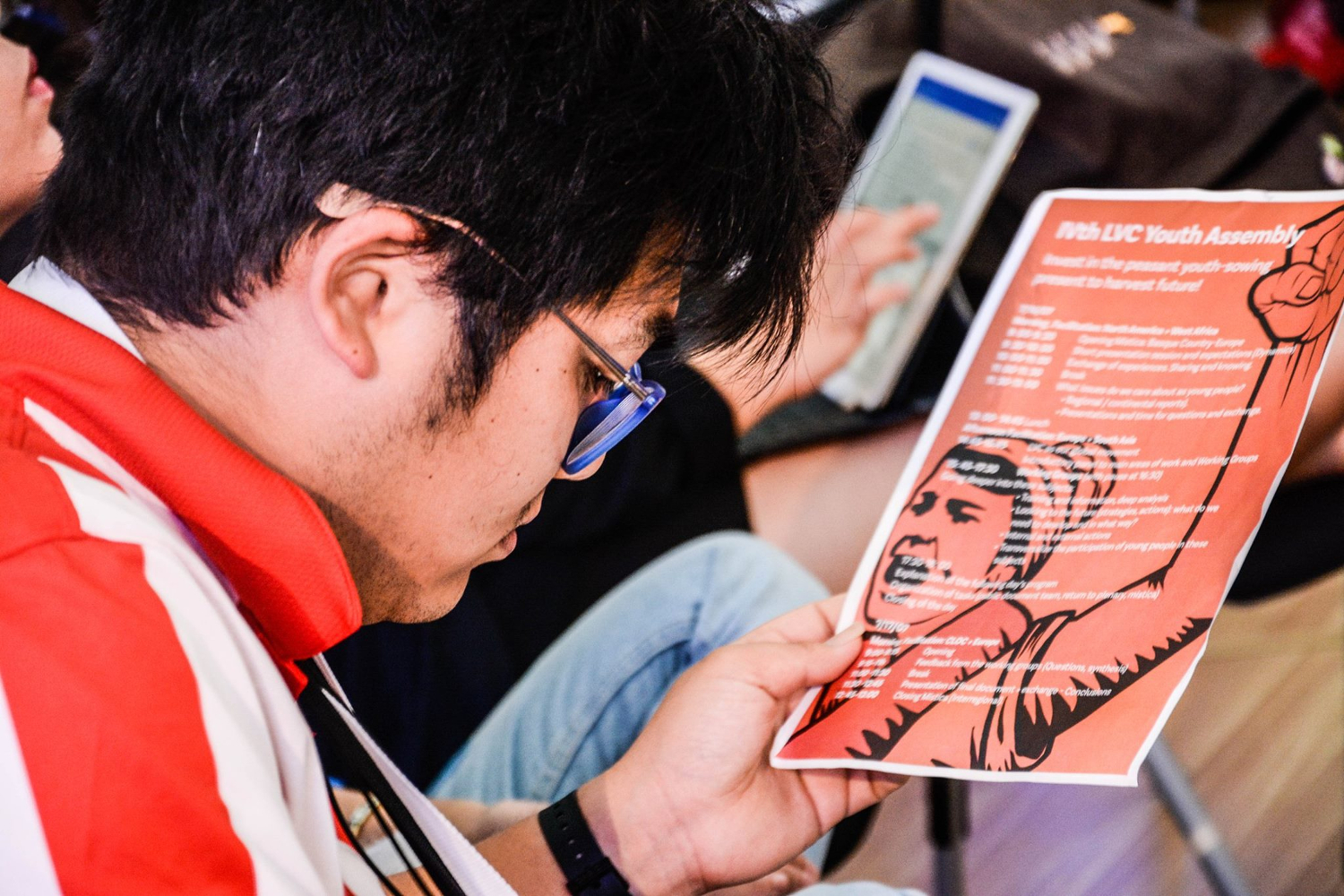Peasant youth share visions of harvesting from better education

Youth represent the future. They are the future solidarity of a movement that builds alliances with other social movements in order to strengthen itself. This movement has grown its communication both within the organisation and with the outside world. It promotes peace in a time of war, criminalisation, and overall instability—all of which impact youth first and foremost.
On July 16 and 17, 2017, the Fourth International Youth Assembly of La Via Campesina took place. The historical position of rural youth was emphasised, at a time when the agricultural population is ageing in many parts of the world and when neoliberalism is adding to this pressure on a daily basis.
One of the major challenges for young people is education and training. The absence, quality, and accessibility of education was voiced as a concern for young peasants in every working group in the assembly, as well as in the debates and comments and questions throughout the plenary sessions. The youth of La Via Campesina expressed their willingness to take matters into their own hands, using the educational tools that are necessary for a better recognition of their rights.
In rural Africa, Asia and Latin America, access to basic education and technical training continues to be difficult. In Europe, accessibility to higher or continuing education is also problematic.
A representative from the UK-based Landworkers’ Alliance remarked that even when available, “the short courses on agroecology, permaculture or beekeeping are often very expensive, and are techniques that are currently fashionable, making them difficult for young farmers to access.” The young farmer also questioned the quality of such one-off trainings, expressing concerns about the co-optation of agroecology. The group reiterated that La Via Campesina must do everything in its power to ensure that peasant agroecology remains anti-capitalist and grounded in food sovereignty.
A young delegate from ZIMSOFF, the Zimbabwean member organisation of La Via Campesina pointed out the lack of access to technical training, even though the majority of young people are engaged in cultivation. In some countries, such as Niger, small producers represent as much as 90% of the population. Young people from across the continent and beyond concluded that the lack of space and possibilities for organising, recognition, and credibility appear to be linked to an overall lack of training. In particular, technical knowledge and awareness of rights, such as the right to land is warranted.
As a response to these problems, several solutions were proposed or reaffirmed by the young people. Above all, strengthening political training of young La Via Campesina activists was prioritised as part and parcel of technical training. Education in agroecology should contain both the political and technical components. A young beekeeper, who is a member of La Via Campesina’s German organisation AbL, explained that “just like the policies we fight for, training will not fall from the sky. The exchange of knowledge, experience, and skills between us is fundamental, and may generate a snowball effect.”
Representatives from Latin America also brought hope to their global counterparts through sharing inspiring work. Examples of peasant schools initiated by local organisations in Central and South America, as well as peasant-to-peasant trainings are soe of their projects that can be explored by other young peasants of La Vía Campesina. These can be used to deliver a blow to the increasing violence of neoliberalism. Many young people were ready to seize such opportunities, and La Via Campesina offers an immense movement in which they can further invest. In the words of a young Brazilian representing MPA: “We have to use our strengths—creativity, energy, connectivity, and all the provocative communication tools that are uniquely ours to achieve the goal of nourishing ourselves through agroecology.”
La Via Campesina – Communications Team
